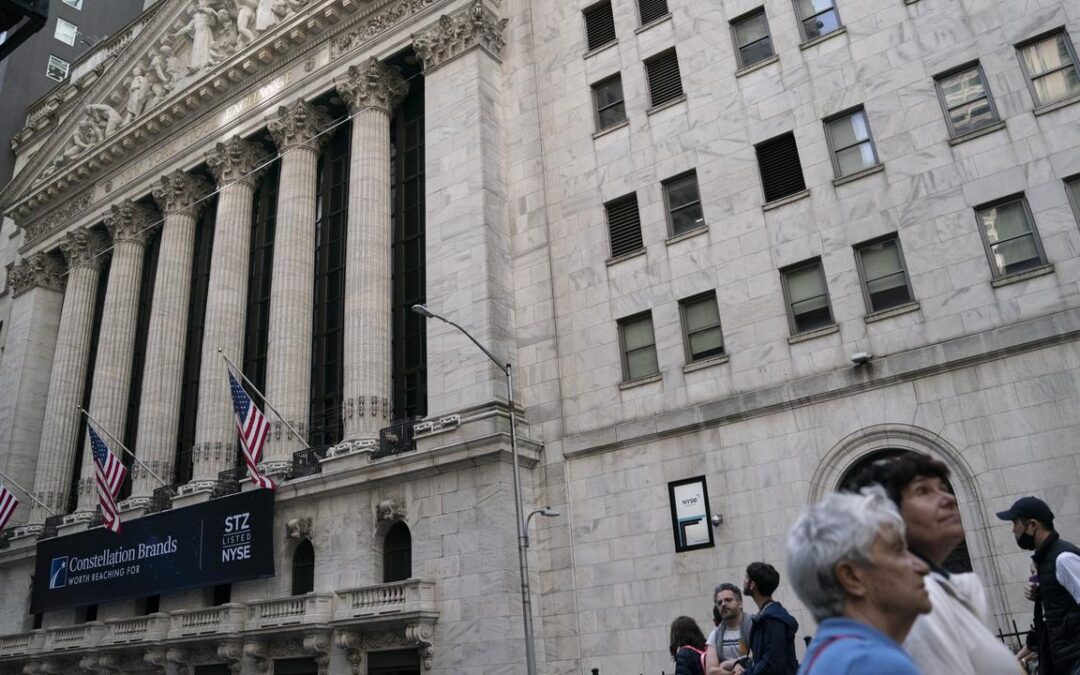
Asia stocks slide on weak China data as copper plunges
Asian equities slipped on Thursday after weaker-than-expected Chinese activity data and a plunge in copper prices, while investors weighed a trade deal between South Korea and the United States.
The dollar held near a two-month high as investors weighed a Federal Reserve decision to hold rates steady and strong earnings from megacap tech firms.
Nasdaq futures surged 1.2 per cent higher after better-than-expected earnings from Microsoft and Meta Platforms. S&P 500 futures advanced 0.8 per cent, while the US dollar held steady after hitting a two-month high.
Both companies’ earnings reports “have shot the lights out”, reporting higher revenue from cloud computing and AI-enabled ad targeting respectively, said Tony Sycamore, a market analyst at IG in Sydney.
MSCI’s broadest index of Asia-Pacific shares outside Japan eased 0.7 per cent, though still on track for its fourth consecutive monthly gain in July.
Stocks in Hong Kong and China led declines after official PMI gauges showed weaker-than-expected economic activity during July.
Markets are now awaiting the Bank of Japan’s monthly policy decision later in the day, with traders looking for any hints that Governor Kazuo Ueda may offer on the likelihood of another rate hike this year.
The Federal Reserve’s rate-setting committee voted 9-2 on Wednesday to hold interest rates steady for the fifth consecutive meeting, with two Fed governors dissenting for the first time in more than three decades.
Fed Chair Jerome Powell’s comments after the decision undercut confidence that borrowing costs would begin to fall in September.
“It will take the next two months of data to convince Fed officials that tariff effects will only lead to modest, one-time price increases and that policy rates should head toward neutral,” analysts from Citi said in a note.
The dollar index was at 98.812, just shy of the two month high of 99.987 it touched on Wednesday. The index is set to clock a 3.1 per cent gain for the month, its first in 2025.
“Although the Federal Reserve decided to keep rates steady at its recent rate setting decision, the chance of rate cuts at upcoming meetings remain live as they balance softening economic data with the potential for persistent inflation,” said Manusha Samaraweera, fixed income investment director at Capital Group.
US gross domestic product growth rebounded more than expected in the second quarter, but the details of the report painted a picture of an economy that was losing steam plagued by uncertainty from Trump’s protectionist trade policy.
The Korean won appreciated 0.3 per cent after Trump said the US will charge a 15 per cent tariff on imports from South Korea, which will in return invest $US350 billion ($A544 billion) in US projects and purchase $US100 billion ($A155 billion) in US energy products.
The announcement is the latest in a series of trade policy deals rushed out before an August 1 deadline to avert the imposition of the April 2 “Liberation Day” tariffs. These deals continue to cast a shadow on global markets.
Copper futures plunged 19.4 per cent after Trump said the US will impose a 50 per cent tariff on copper pipes and wiring, as the details of the levy fell short of the sweeping restrictions expected and left out copper input materials such as ores, concentrates and cathodes.
Trump said on Wednesday negotiations on trade with India are still under way after announcing earlier the US will impose a 25 per cent tariff on goods imported from the country.
Meanwhile, the US will also suspend its “de minimis” exemption that allowed low-value commercial shipments to be shipped to the United States without facing tariffs. The tax break is a mainstay of China’s low-cost e-commerce platforms such as Shein and PDD’s Temu.
In commodities, oil prices rose for a fourth straight day on Thursday, as investors worried about supply shortages amid Trump’s push for a swift resolution to the war in Ukraine and threats of tariffs on countries buying Russian oil.
Brent crude futures for September delivery, which are set to expire on Thursday, rose 0.33 per cent, to $US73.48 ($A114.18) a barrel, while US West Texas Intermediate crude for September gained 0.21 per cent to $US70.15 ($A109.01) a barrel.

Lehrmann claims cops destroyed evidence of innocence
Former Liberal staffer Bruce Lehrmann has claimed police destroyed evidence that could prove his innocence and his pending rape trial should therefore be abandoned.
Lehrmann’s solicitor Zali Burrows told Brisbane District Court on Thursday that Queensland Police had been unable to access a hard drive that contained extensive case files.
The included audio of Lehrmann taken before his arrest in 2023 and a full download of his mobile phone.

Ms Burrows’ claims are to be tested at a hearing on September 26, with Judge Deborah Richards ordering that Lehrmann would not face a potential trial on two counts of rape until at least 2026.
The 30-year-old appeared by phone for the mention of his case.
Judge Benedict Power previously directed the defence and prosecutors to agree on a nominal start date for the trial.
But Ms Burrows on Thursday said that would be premature for multiple reasons.
“There is an application for a permanent stay of proceedings on the basis of destruction of exculpatory material,” she said.
“The officer in charge of this investigation has lost material that was stored on a personal hard drive that contained materials from the course of the investigation.”
Ms Burrows said the hard drive contained audio recordings involving witnesses and Lehrmann, copies of statements and video recordings.

“(The officer) claims the hard drive malfunctioned for unknown reasons,” she said.
“Defence has sought access to the hard drive for an independent interrogation by our own experts but we are told the hard drive has now been destroyed.”
Lehrmann, who is on bail, is accused of raping a woman twice during the morning of October 10, 2021.
They met during the previous night at a strip club in Toowoomba, west of Brisbane.
The former ministerial staffer to Liberal senator Linda Reynolds was charged in January 2023 and is yet to formally enter a plea.
But his former solicitor previously told a magistrate Lehrmann intended to contest the charges.
Crown prosecutor Peter Blake-Segovia did not respond to Ms Burrows’ submissions about the officer’s hard drive or her claims that police were providing her copies of evidence in a “piecemeal” manner.

Judge Richards said there was no room in this year’s calendar for another trial.
“I don’t have a calendar for next year yet. You are off the hook for a trial date at this stage,” she said.
Barrister Michael Bonasia, representing the Queensland police commissioner, told Judge Richards his client had been served a subpoena by Ms Burrows for copies of all materials in the case.
“There’s an application for any claims of privilege for documents sought under the subpoena,” he said.
Judge Richards ordered a hearing on the subpoena claims on August 28 and a hearing on September 26 for Ms Burrows’ application to permanently stay proceedings, which if granted would halt the trial before it started.
“On 29 October … (a date) will be listed for the trial if it’s still on foot,” the judge said.
Lehrmann’s bail was continued.
1800 RESPECT (1800 737 732)
National Sexual Abuse and Redress Support Service 1800 211 028
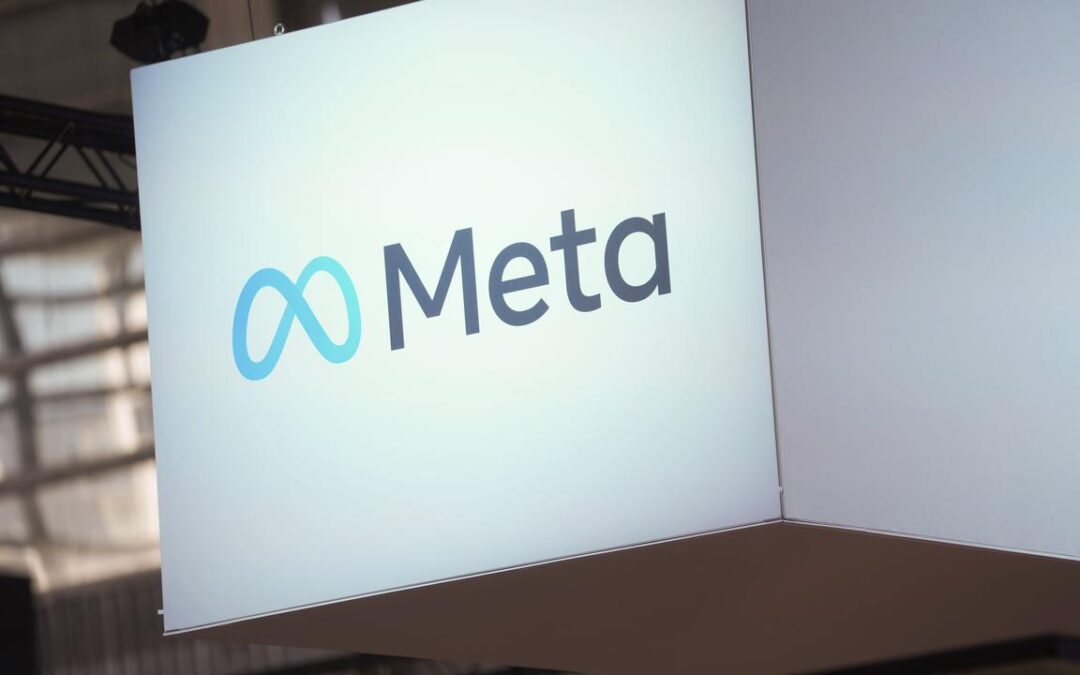
Meta surges after Q2 results blow past expectations
Meta’s artificial intelligence spending spree appears to be paying off with investors, who sent the company’s stock soaring following a blowout quarterly earnings report.
The Menlo Park, California-based company easily beat Wall Street’s expectations for the second quarter, helped by higher advertising revenue and a growing user base on its flagship social media platforms. The money is helping to fund the company’s massive investments in AI development and hiring top talent at eye-popping compensation levels.
“Not only has Meta made demonstrable strides with AI, but it’s helping to future proof itself as a growth company, should its family of apps get affected by the current anti-trust case or changing social media sentiment,” said Forrester research director Mike Proulx.
Meta is facing an antitrust case that’s now awaiting a judge’s decision and could force the company to break off WhatsApp and Instagram, startups Meta bought more than a decade ago that have since grown into social media powerhouses.
The company earned $US18.34 billion ($A28.50 billion), or $US7.14 ($A11.10) per share, in the April-June period. That’s up 36 per cent from $US13.47 billion ($A20.93 billion), or $US5.16 ($A8.02) per share, in the same period a year earlier.
Revenue jumped 22 per cent to $US47.52 billion ($A73.84 billion) from $US39.07 billion ($A60.71 billion).
Analysts expected Meta to earn $US5.88 ($A9.14) per share on revenue of $US44.81 billion ($A69.63 billion), according to a poll by FactSet.
Meta’s daily active user base on its apps — Facebook, Messenger, WhatsApp, Instagram and Threads — was 3.48 billion, up 6.0 per cent year-over-year.
Meta said it expects costs to increase as it spends billions on infrastructure and luring highly compensated employees as it works on its AI ambitions. It’s forecasting 2025 expenses to be in the range of $US114 billion ($A177 billion) to $US118 billion ($A183 billion), up 20 per cent to 24 per cent year-over-year.
In the latest demonstration of his AI enthusiasm, CEO Mark Zuckerberg on Wednesday posted a note detailing his views on “personal superintelligence” that he believes will “help humanity accelerate our pace of progress”.
While he said that developing superintelligence is now “in sight,” he did not detail how this will be achieved or exactly what “superintelligence” means.
The abstract idea of “superintelligence” is what rival companies call artificial general intelligence, or AGI. It’s the latest pivot for a tech leader who in 2021 went all-in on the idea of the metaverse, changing the company’s name and investing billions into advancing virtual reality and related technology.
“Meta’s vision is to bring personal superintelligence to everyone. We believe in putting this power in people’s hands to direct it towards what they value in their own lives,” Zuckerberg wrote.
“This is distinct from others in the industry who believe superintelligence should be directed centrally towards automating all valuable work, and then humanity will live on a dole of its output.”
Zuckerberg said in a conference call he believes AI glasses are going to be “the main way we integrate superintelligence”.
Last month, Meta invested $US14.3 billion ($A22.2 billion) in AI company Scale and recruited its CEO Alexandr Wang to join a team developing “superintelligence.” The tech giant also cut a 20-year deal in early June to secure nuclear power to help meet surging demand for AI and other computing needs.
Meta ended the quarter with 75,945 employees, up 7.0 per cent from a year earlier.
Meta’s shares rose $US81.87 ($A127.22), or 11.8 per cent to $US777.08 ($A1,207.55) in after-hours trading — on track to reach a record high Thursday after the stock market opens.
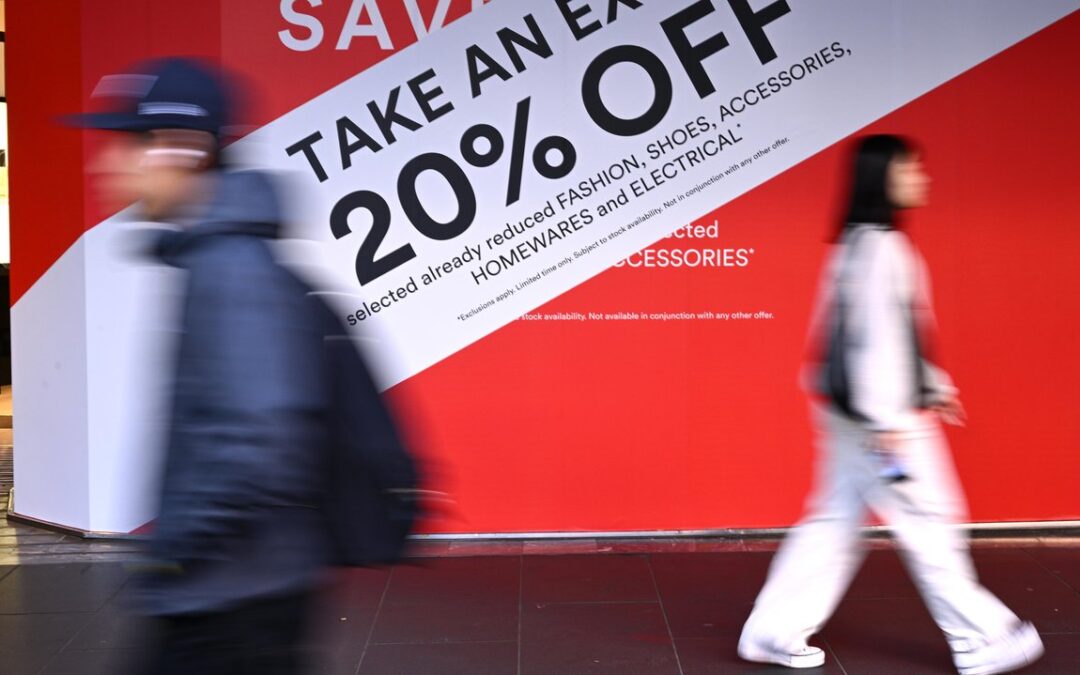
Central bank hails inflation ‘jigsaw’ coming together
A promising fall in inflation has been heralded by a top Reserve Bank of Australia official, whose dovish comments will reinforce expectations of another rate cut.
The central bank’s deputy governor, Andrew Hauser, said data released by the Australian Bureau of Statistics a day earlier was “very welcome”.
The RBA’s preferred measure of inflation, the trimmed mean, fell from 2.9 per cent to 2.7 per cent in the June quarter.
Mr Hauser said the central bank had been looking for more evidence that inflation was moving sustainably back to the midpoint of its two to three per cent target band.
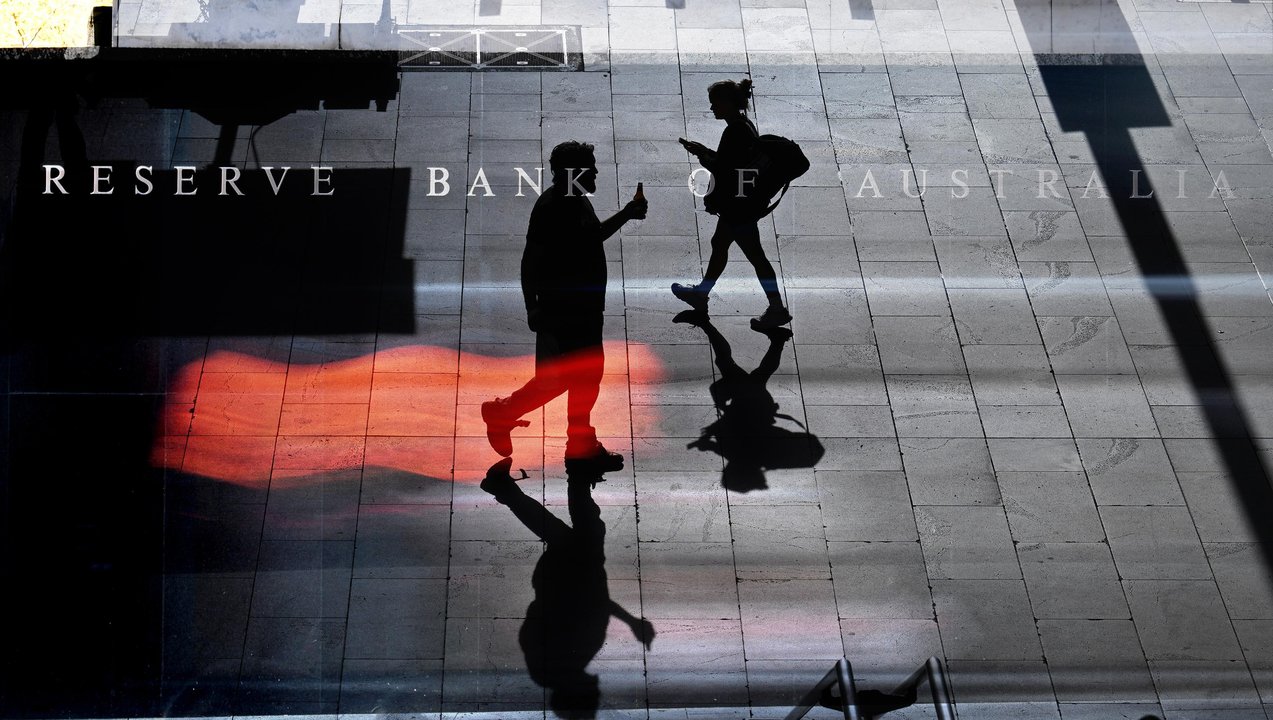
“And we’ve had another piece of that jigsaw yesterday,” he told an economic forum hosted by investment bank Barrenjoey on Thursday.
The central bank official reiterated the RBA’s strategy of ensuring interest rates brought inflation back to 2.5 per cent sustainably while keeping unemployment low.
“And to do that through a policy that is gradual, considered, measured. There’s lots of words – predictable,” he said.
The RBA stunned analysts by leaving rates on hold in July, with governor Michele Bullock telling a recent event its board preferred a “measured and gradual” approach to easing interest rates.
Money markets and economists widely expect the central bank board to lower the cash rate to 3.6 per cent, from a current 3.85 per cent, at its meeting in August.
Another interest rate cut would be “welcome relief” for mortgage holders, Treasurer Jim Chalmers said.
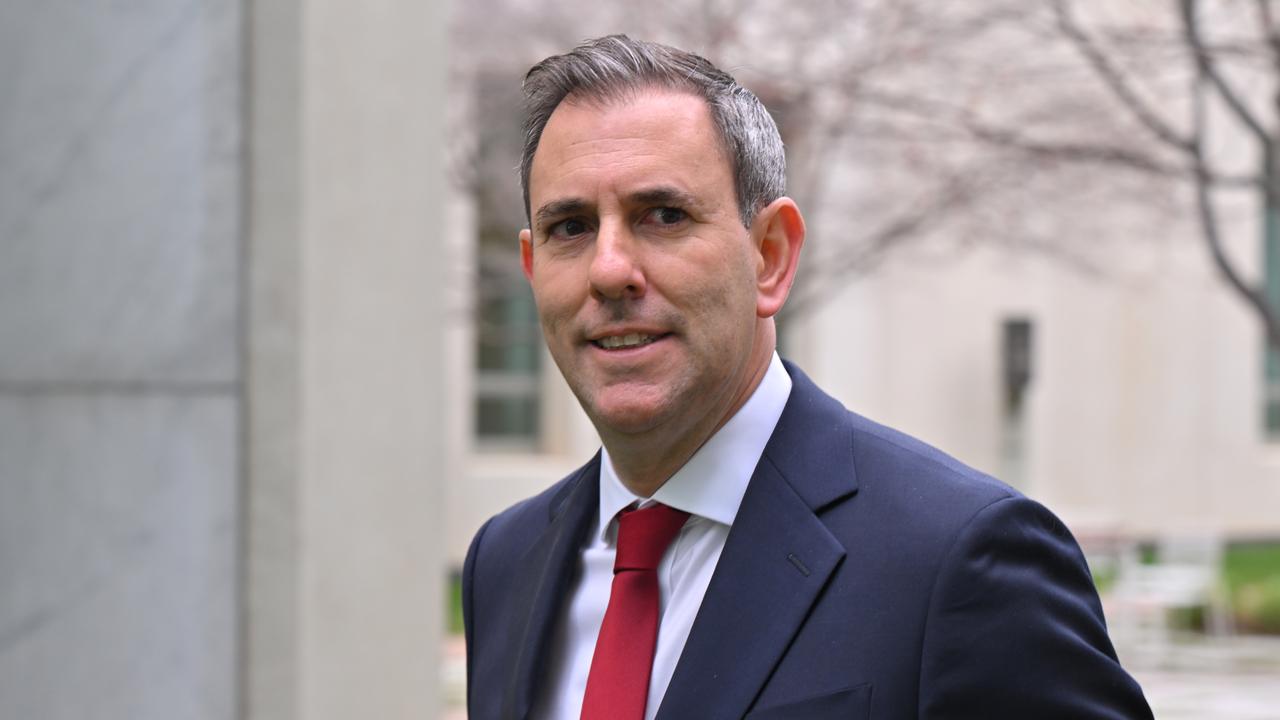
It reflected the “remarkable progress” Australia had made in cutting inflation in the last three years.
“But it’s never mission accomplished because the global environment is uncertain – we’ve got some persistent structural issues in our economy, growth in our economy is soft, and people are under pressure,” Dr Chalmers told ABC TV.
Opposition frontbencher Michaelia Cash said it was a good thing inflation was falling, but Australians were still doing it tough because prices had grown faster and for longer than elsewhere in the world.
“So Jim, take all the credit you like. But the bad news is you’re the architect of the cost-of-living crisis that Australians live under your government,” she told Nine’s Sunrise program.
In a bid to address structural issues in the economy, Dr Chalmers has convened a roundtable of experts, business and unions to discuss Australia’s productivity woes. They will gather in late August.
Building more homes sooner will be a central focus of the roundtable, the treasurer hopes.
“The primary focus there, I think, at the roundtable will be around how we speed up approvals and get the zoning for housing right, because we desperately need more homes,” he said.
But fault lines have opened up between businesses and unions on issues like the use of artificial intelligence.
Peak union body, the ACTU, has called for tougher regulations to ensure AI does not lead to job losses, while business groups have warned against regulation that could stifle the adoption of the technology.

Independent MP Zali Steggall called for the government to appoint a special envoy for AI and the future of work to drive adoption of the technology while addressing growing public distrust.
“I am concerned it’s going to be unions trying to put a lid on it,” Ms Steggall told AAP.
“Look, I am supportive of guardrails. It has to be done safely, but to suggest that you can put the genie back in the bottle is unrealistic.”
The former Winter Olympian on Thursday launched her economic plan to re-energise the economy while speeding the transition to net zero, by encouraging clean energy investment and reducing the cost of housing.
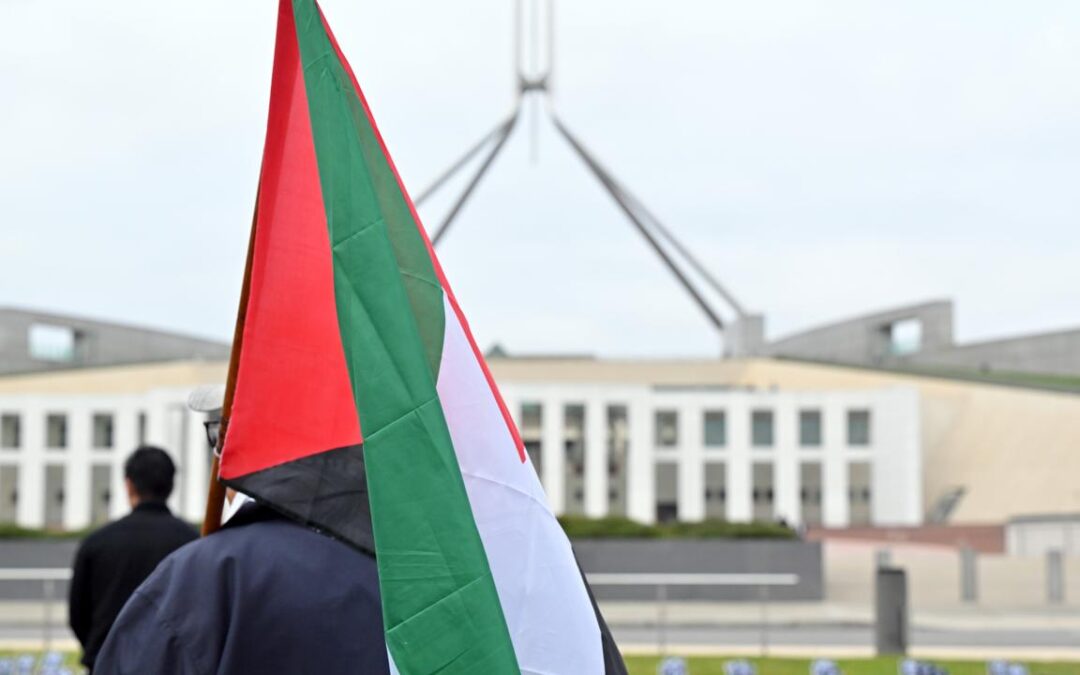
Australian recognition of Palestine: ‘when, not if’
Australia’s recognition of Palestine is a matter of “when, not if”, the treasurer says, as another country joined the queue to formally acknowledge its statehood.
Overnight, Canada followed the UK and France in announcing its plan to recognise Palestine as a state at a UN General Assembly meeting in September.
Canadian Prime Minister Mark Carney said recognition will be contingent on the demilitarisation and exclusion of Hamas, which controls the Gaza Strip and is deemed a terrorist organisation by Australia.
The Labor federal government views Palestinian statehood as an important step toward a two-state solution and as the “best pathway out of this enduring cycle of violence”, Treasurer Jim Chalmers said.
“From an Australian point of view, recognition of the state of Palestine is a matter of when, not if,” he told Sky News on Thursday.
“This progress, this momentum that we’re seeing, is welcome but it’s also conditional … we need to make sure that there’s no role for Hamas in any future leadership.”
Despite indications Australia will also follow suit, Prime Minister Anthony Albanese has declined to set a timeline for when that will take place.
Overnight, Mr Albanese held talks with his UK counterpart Keir Starmer on the Middle East, and the pair discussed support for a two-state solution.
Mr Albanese reiterated Australia’s “long-standing and strong support for a two-state solution”, and cited the country’s aid contribuutions.
The pair also spoke about the UK’s framework for recognising Palestine as a state.
“The leaders agreed on the importance of using the international momentum to secure a ceasefire, the release of all hostages and the acceleration of aid, as well as ensuring Hamas did not play a role in a future state,” according to a readout of the talks.

Opposition frontbencher James Paterson said he did not support the “premature” recognition of a Palestinian state before the conclusion of a peace process that establishes the two-state principle, which would include Israel.
“I don’t think we should decide Australia’s foreign policy according to some artificial measure of momentum,” he told Sky News.
“We should decide if it’s consistent with our national interest and the principles which the Australian government has upheld on a bipartisan basis for decades, which is that we want two states.”
Greens senator Sarah Hanson-Young said the federal government must formally recognise Palestine.
“It’s time to be recognising the state of Palestine …in line with comparable countries across the world,” she told Sky News.
Last week, France became the first G7 nation to announce it would recognise Palestine, and was soon followed by the UK and Canada.
The G7 group of major industrialised nations includes France, the US, the UK, Italy, Germany, Canada and Japan.
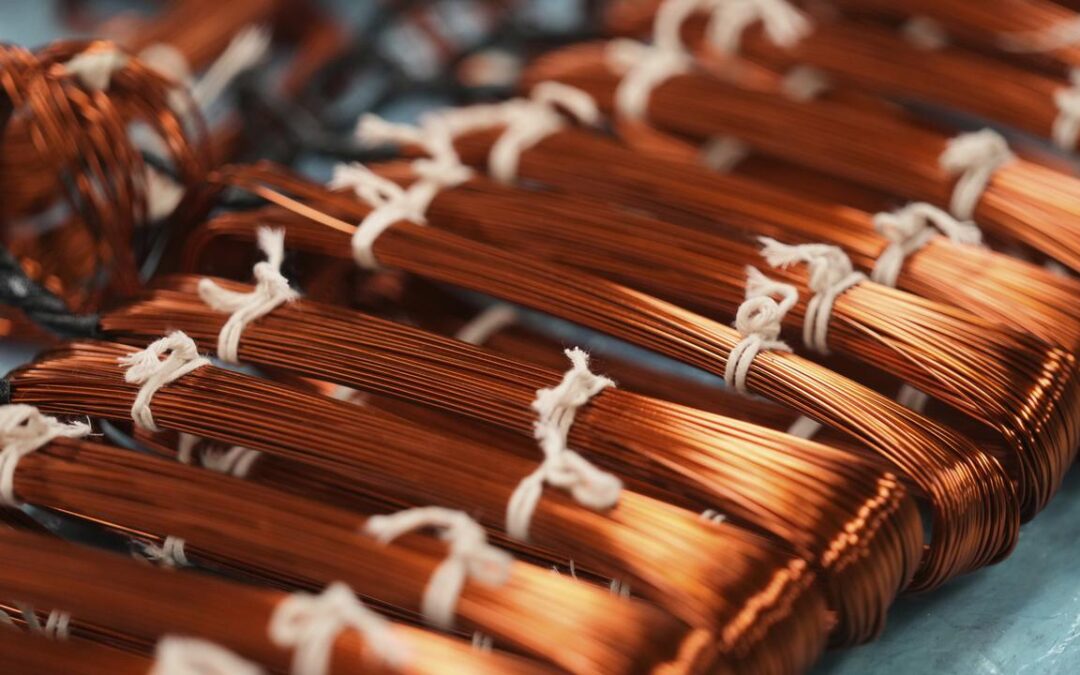
US imposes 50 per cent tariff on copper imports: Trump
US President Donald Trump has signed a proclamation ordering 50 per cent tariffs on certain copper imports, citing national security, the White House says.
The proclamation imposes a 50 per cent tariff on semi-finished copper products and copper-intensive derivative products as of August 1, according to a fact sheet released by the White House.
The tariffs will exclude copper scrap and copper input materials such as copper ores, concentrates, mattes, cathodes and anodes, the statement said.
The measure came after a US investigation under Section 232, which US President Donald Trump ordered in February.
Along with tariffs, the order calls for steps to support the domestic copper industry, including requiring 25 per cent of high-quality scrap produced in the US to also be sold within the country.
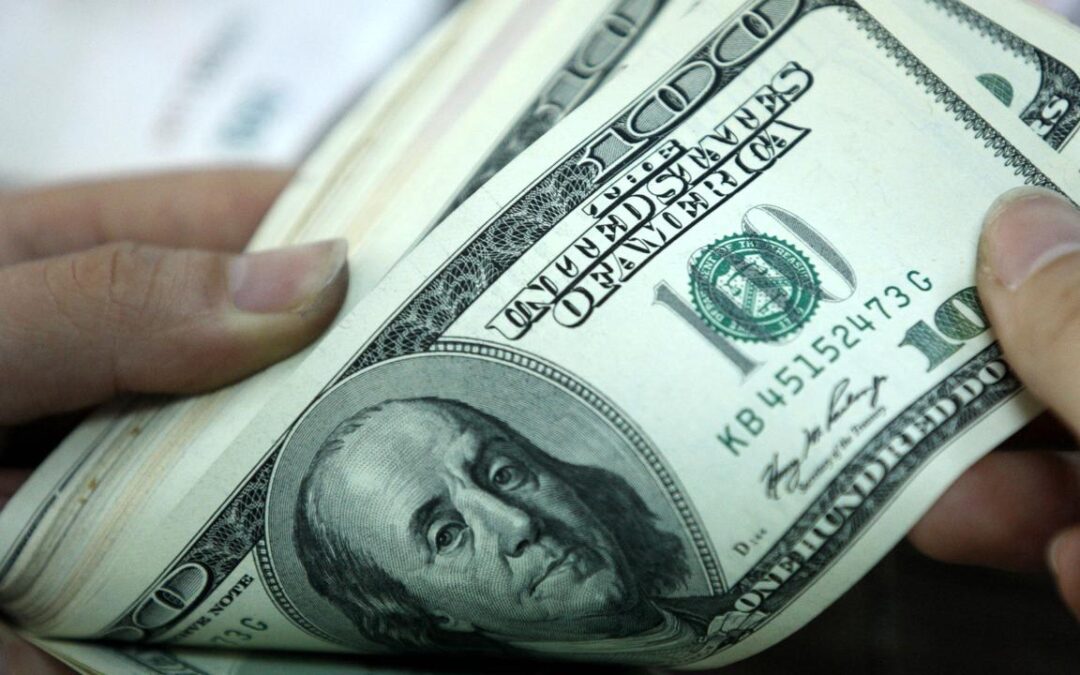
US central bank leaves interest rates unchanged
The US Federal Reserve has left its key short-term interest rate unchanged for the fifth time this year, brushing off repeated calls from President Donald Trump for a cut.
The Fed’s decision on Wednesday leaves its key short-term rate at about 4.3 per cent, where it has stood after the US central bank reduced it three times last year.
Chair Jerome Powell has said the Fed would likely have cut rates already if not for Trump’s sweeping tariffs.
Powell and other Fed officials say they want to see how Trump’s duties on imports will affect inflation and the broader economy.
So far the duties have lifted costs of some goods such as appliances, furniture and toys and overall inflation has risen slightly although less than many economists had expected.
There were some signs of splits in the Fed’s ranks: governors Christopher Waller and Michelle Bowman voted to reduce borrowing costs while nine officials, including Powell, favoured standing pat.
It is the first time in more than three decades that two of the seven Washington DC-based governors have dissented.
One official, governor Adriana Kugler, was absent and did not vote.
The choice to hold off on a rate cut will almost certainly result in further conflict between the Fed and White House, as Trump has repeatedly urged the central bank to reduce borrowing costs.
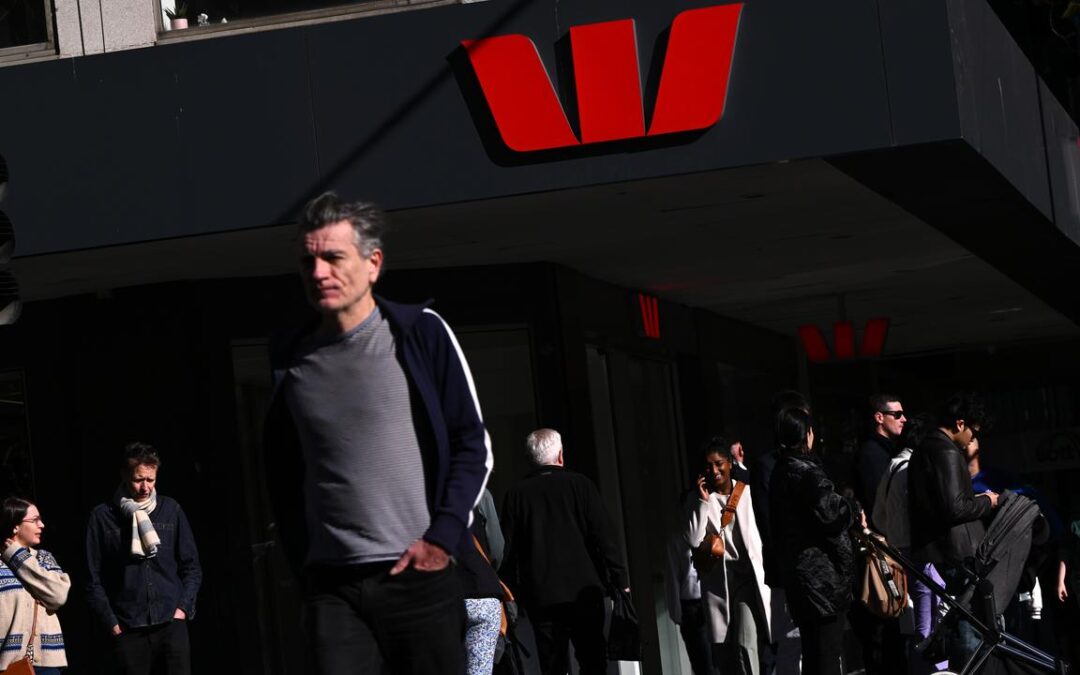
All eyes on top bank official as rate-cut hopes inflate
A fireside chat starring a top Reserve Bank of Australia official will be closely watched as mortgage holders look for more signs confirming another interest rate cut.
RBA deputy governor Andrew Hauser will speak at an economic forum hosted by investment bank Barrenjoey on Thursday.
The event comes less than 24 hours after the Australian Bureau of Statistics revealed the Reserve Bank’s preferred measure of inflation, the trimmed mean, eased to 2.7 per cent in the June quarter.
The result was slightly softer than economists had expected and was widely interpreted as consistent with the RBA board lowering the cash rate to 3.6 per cent at its next meeting in August.
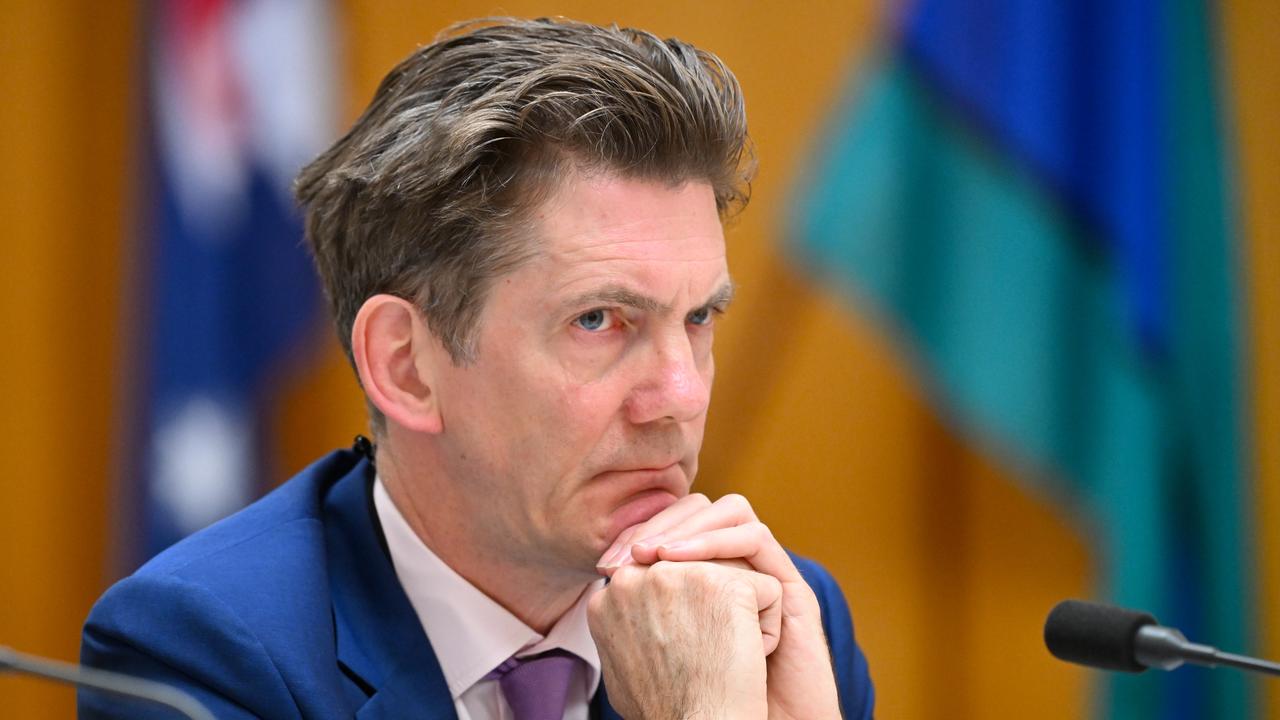
Money markets are fully pricing in a 25 basis point cut and have upped the odds of a back-to-back cut in September to about 40 per cent, said Chief CommSec economist Ryan Felsman.
But Mr Hauser could “offer some push-back about the need for rapid easing” at the Barrenjoey event in Sydney.
The RBA stunned analysts by leaving rates on hold in July, with governor Michele Bullock telling an event last week that the board preferred a “measured and gradual” approach to easing interest rates.
While less pivotal than inflation or jobs data, retail sales figures released by the ABS on Thursday will provide an update on the vitality of the Australian consumer.
The recovery in household spending has been softer than the RBA had expected, the board said in minutes from its last meeting.
But sales are expected to rebound to the highest level since the beginning of 2024, following a run of softer months.
The retail print is the last the bureau will produce before it switches over to a more comprehensive measure of consumption, the monthly household spending indicator.
As the government prepares for an economic roundtable aimed at fixing Australia’s productivity woes, fault lines have opened up between businesses and unions on artificial intelligence.
Peak union body the ACTU has called for tougher regulations to ensure AI does not lead to job losses, while business groups have warned against regulation that could stifle adoption of the technology.

Independent MP Zali Steggall has called for the government to appoint a special envoy for AI and the future of work to drive adoption of the technology while addressing growing public distrust.
“I am concerned it’s going to be unions trying to put a lid on it,” Ms Steggall told AAP.
“Look, I am supportive of guardrails. It has to be done safely, but to suggest that you can put the genie back in the bottle is unrealistic.”
The former Winter Olympian on Thursday launched her economic plan to re-energise the economy while speeding the transition to net zero, by encouraging clean energy investment and reducing the cost of housing.

Fears for vulnerable children as social media ban grows
Limiting children’s access to social media could inadvertently harm marginalised children, an expert has warned, as YouTube is roped into Australia’s ban.
The federal government’s decision to include the video-sharing platform in its social media ban for under-16s has renewed focus on the measure.
While it has been broadly celebrated by the coalition and Labor, who say it will protect children from the harms of social media, youth mental health foundation Headspace disagrees.
“This is seen as a solution and it may be helpful, we don’t know. But it may cause harm as well,” national clinical advisor Simon Dodd told AAP.
“We’ve talked to young people and they value social media. They value the connections it gives them.”
This was particularly true for those who struggled to find physical community in parts of regional or rural Australia, and for LGBTQI youth, who use social media platforms to find support and stay safe, Mr Dodd said.
Mental health is complicated as there are many factors that can impact it, including a person’s social environment, and focusing on one measure as a solution risks missing opportunities to address young people’s challenges .
From December, people under 16 will no longer be able to create accounts on social media platforms such as Snapchat, Instagram, Facebook ,TikTok and now YouTube.
Platforms that fail to conform with these rules face fines of up to $49.5 million.
Eating disorder not-for-profit Hide N Seek warned YouTube could be home to harmful content such as extreme videos about body transformations or “what I eat in a day” media.
“It can be extremely damaging, extremely damaging for children who are still developing their sense of self,” founder Jaimee Krawitz told AAP.
“But YouTube also hosts supportive, recovery-focused communities and educational content that can be part of a young person’s healing journey.”

The changes will still allow children to access YouTube Kids or view videos accessible without an account.
Though he recognised regulation was part of the answer to making online spaces safer, Mr Dodd has also urged the government to centre on young people’s voices.
“They have consistently told us they get the complexities of the social media environment and understand it better than many of the adults who are trying to legislate something that is difficult to manage,” he said.
“Without genuine consultation, this will result in young people feeling less trust in government and that is a real worry.”
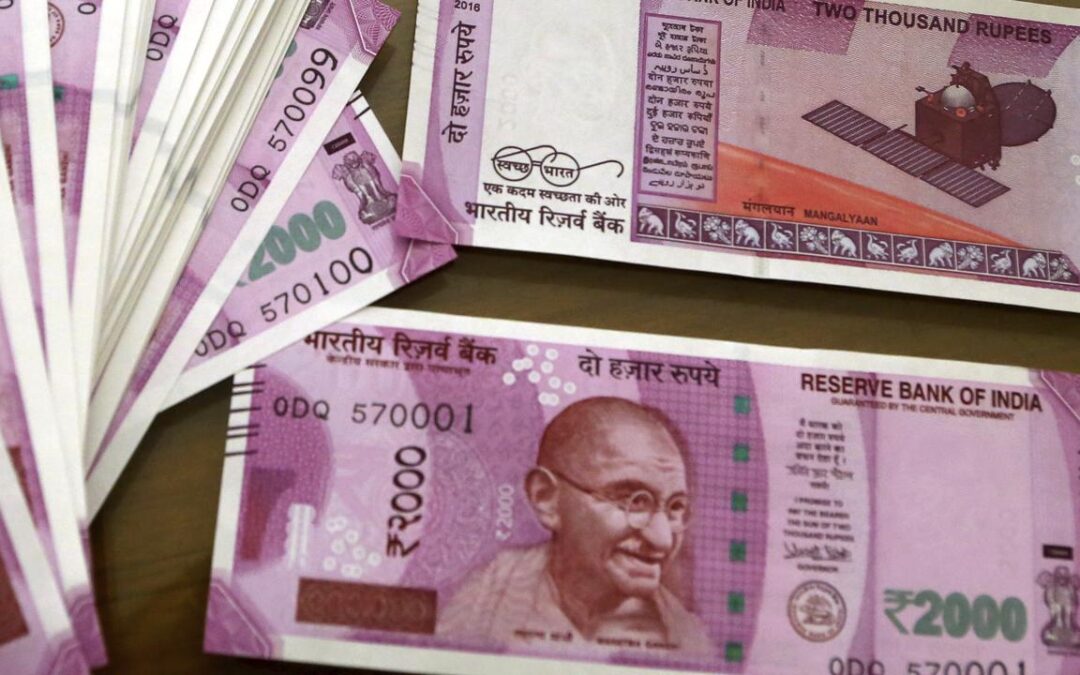
Trump says US to impose 25 per cent tariff on India
US President Donald Trump has imposed a 25 per cent tariff on goods imported from India starting on August 1, along with an unspecified penalty for buying Russian weapons and oil.
The US decision singles out India more severely than other major trading partners, and threatens to unravel months of talks between the two countries, undermining a key strategic partner of the United States.
“While India is our friend, we have, over the years, done relatively little business with them because their Tariffs are far too high, among the highest in the World, and they have the most strenuous and obnoxious non-monetary Trade Barriers of any Country,” Trump wrote in a Truth Social post.
“They have always bought a vast majority of their military equipment from Russia, and are Russia’s largest buyer of ENERGY, along with China, at a time when everyone wants Russia to STOP THE KILLING IN UKRAINE — ALL THINGS NOT GOOD!”
The Indian government said in a statement on Wednesday it had taken note of the US bilateral trade tariff decision and added that it was studying its implications.
The White House has previously warned India about its high average applied tariffs – nearly 39 per cent on agricultural products – with rates climbing to 45 per cent on vegetable oils and about 50 per cent on apples and corn.
Russia continued to be the top oil supplier to India during the first six months of 2025, making up 35 per cent of overall supplies.
The US currently has a $US45.7 billion ($A70.3 billion) trade deficit with India.
The news pushed the Indian rupee down 0.4 per cent to about 87.80 against the US dollar in the non-deliverable forwards market, from its close at 87.42 during market hours.
“Higher tariffs for India compared to countries it competes with, for exports to the US, are going to be challenging,” said Ranen Banerjee, a partner of economic advisory services at PwC India.
US and Indian negotiators had held multiple rounds of discussions to resolve contentious issues, particularly over market access into India for US agricultural and dairy products.
Despite progress in some areas, Indian officials resisted opening the domestic market to imports of wheat, corn, rice and genetically modified soybeans, citing risks to the livelihood of millions of Indian farmers.
The US had flagged concerns over India’s increasing and burdensome import-quality requirements, among its many barriers to trade, in a report released in March.
The new tariffs are expected to affect India’s goods exports to the US, estimated at about $US87 billion in 2024, including labour-intensive products such as garments, pharmaceuticals, gems and jewellery and petrochemicals.
India joins a growing list of countries facing higher tariffs under Trump’s “Liberation Day” trade policy, aimed at reshaping US trade relations by demanding greater reciprocity.
The setback comes despite earlier commitments by Prime Minister Narendra Modi and Trump to conclude the first phase of a trade deal by the northern hemisphere autumn 2025 and expand bilateral trade to $US500 billion by 2030, from $US191 billion in 2024.
Indian officials have previously indicated that they view the US as a key strategic partner, particularly in counterbalancing China.
But they have emphasised the need to preserve policy space on agriculture, data governance and state subsidies.
It was not immediately clear whether the announcement was a negotiating tactic.
“I think President Trump is frustrated with the progress we’ve made with India but feels that a 25 per cent tariff will address and remedy the situation in a way that’s good for the American people,” White House economic adviser Kevin Hassett said on Wednesday.
“While the negotiations seems to have broken down, we don’t think the trade-deal haggling between the two nations is over yet,” Madhavi Arora, an economist at Emkay Global, said.